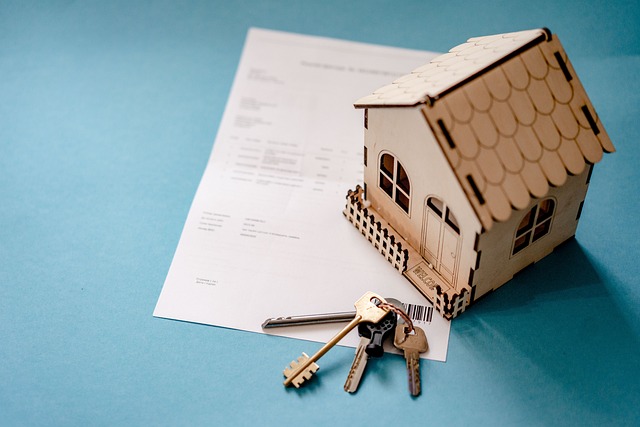
Understanding Property Disclosures: The Key to Transparent Transactions
Purchasing a home is often considered one of the most significant financial decisions a person can make, and in the vibrant real estate market of Florida, understanding property disclosures is essential for both buyers and sellers. Property disclosures are statements that reveal the condition of a property, including any known defects, issues, or necessary repairs. They’re a vital tool to promote transparency and trust in real estate transactions.
In Florida, sellers are legally obligated to disclose any material defects that could affect the value or desirability of the home. This includes information about the roof, plumbing, electrical systems, and even environmental hazards like mold or lead paint. The goal is to provide potential buyers with as much information as possible so they can make informed decisions.
However, property disclosures can sometimes be a double-edged sword. While they protect buyers by providing vital information, they can also be a source of contention. Sellers may be hesitant to disclose certain issues for fear of scaring away potential buyers or affecting the sale price. This creates a delicate balancing act where honesty and transparency must be weighed against potential financial implications.
Understanding what constitutes a material defect is crucial. For example, if a seller is aware of a leaking roof but chooses not to disclose it, they could face legal repercussions down the line. Buyers must also be proactive—simply relying on disclosures is not enough. It’s prudent for buyers to conduct their own inspections and research to ensure they are making a sound investment.
The Art of Mortgage Approval: Turning Dreams into Reality
After navigating the waters of property disclosures, the next significant milestone in the home buying journey is securing mortgage approval. This process can feel overwhelming, but it doesn’t have to be. Understanding the nuances of mortgage approval is key to turning that dream of homeownership into a reality.
The first step in the mortgage approval process is pre-approval. This is where lenders assess your financial situation to determine how much you can borrow. Factors such as your credit score, income, debt-to-income ratio, and employment history will all come into play. In Florida’s competitive real estate market, obtaining pre-approval is crucial as it demonstrates to sellers that you are a serious buyer, ready to make a move.
Once pre-approved, you can start house hunting with a clear budget in mind. However, it’s essential to keep in mind that mortgage approval is not just a one-time event. Lenders will continue to evaluate your financial situation until the closing of the sale. This means any significant changes, such as taking on new debt or switching jobs, can jeopardize your approval.
Moreover, understanding the different types of mortgages available can also play a significant role in your approval process. Conventional loans, FHA loans, VA loans, and USDA loans each come with their own sets of requirements and benefits. Taking the time to research and understand these options can save you money and make your home buying experience smoother.
The Importance of Earnest Money: A Buyer’s Commitment
When you find the perfect home, the next step is often to make an offer, and this is where earnest money comes into play. Earnest money is a deposit made to demonstrate the buyer’s serious intent to purchase a property. It acts as a financial handshake between the buyer and seller, establishing trust and commitment.
Typically, earnest money is held in escrow and can range from 1% to 3% of the purchase price. This amount may vary based on local customs and the specific terms negotiated in the sales contract. In Florida, if the sale goes through, the earnest money is usually applied to the buyer’s closing costs or down payment. However, if the deal falls through due to contingencies outlined in the contract, the buyer may be entitled to a full refund of their earnest money.
But what happens if a buyer backs out for reasons not covered by contingencies? In that case, the seller may be entitled to keep the earnest money as compensation for their time and effort. This underscores the importance of understanding the terms of the agreement thoroughly before making an offer.
In a competitive market like Florida, having a solid earnest money strategy can also set you apart from other buyers. Offering a higher earnest money deposit can signal to sellers that you are serious and financially capable, potentially giving you an edge in negotiations.
Commission Rates: The Hidden Costs of Home Buying
As you journey through the home buying process, understanding commission rates is crucial. These fees are often overlooked, yet they play a significant role in the overall cost of purchasing a home. In Florida, the standard real estate commission is typically around 5% to 6% of the home’s sale price, which is split between the buyer’s agent and the seller’s agent.
While this may seem straightforward, it’s important to recognize that commission rates can be negotiable. Understanding the market dynamics and the specific services provided by your agent can empower you to negotiate a fair commission rate that reflects the value you are receiving.
Furthermore, commission rates can vary depending on the type of property, location, and the specific agreement between the agent and client. Some agents may offer lower commission rates or flat fees, while others may provide additional services that justify higher fees. It’s essential to have open discussions with your agent about what services are included in their commission and to ensure that you are getting the best value for your investment.
Additionally, keep in mind that while commission rates are a significant factor, the quality of service and expertise can often outweigh the costs. The right agent can guide you through the complexities of the real estate market, ensuring a smoother transaction and potentially saving you money in the long run.
The Role of Home Inspections: Protecting Your Investment
After navigating property disclosures, securing mortgage approval, understanding earnest money, and evaluating commission rates, the final piece of the puzzle is the home inspection. Home inspections are a crucial step in the home buying process, providing buyers with a detailed assessment of the property’s condition.
In Florida, hiring a qualified home inspector is essential. A thorough inspection can uncover hidden issues such as roof damage, plumbing problems, electrical hazards, or pest infestations. This information is vital for buyers, as it can influence their decision to move forward with the purchase or renegotiate terms based on the findings.
Moreover, a home inspection can empower buyers by providing them with a clearer understanding of the property’s condition, allowing for informed negotiations. If significant issues arise during the inspection, buyers can request repairs or credits from the seller, potentially saving thousands of dollars in future repairs.
Understanding the importance of home inspections extends beyond just the immediate transaction. It also contributes to long-term satisfaction with your investment. A well-inspected home is more likely to be a sound investment that will appreciate over time, providing peace of mind for years to come.
In conclusion, the process of buying a home in Florida is multifaceted, involving property disclosures, mortgage approvals, earnest money, commission rates, and home inspections. Each of these components plays a crucial role in ensuring a successful and satisfying home buying experience. By arming yourself with knowledge and understanding, you can navigate this complex landscape with confidence. If you have any questions about the home buying process or need assistance with your real estate transactions, don’t hesitate to [contact us](#) today. Our team is here to guide you every step of the way.
